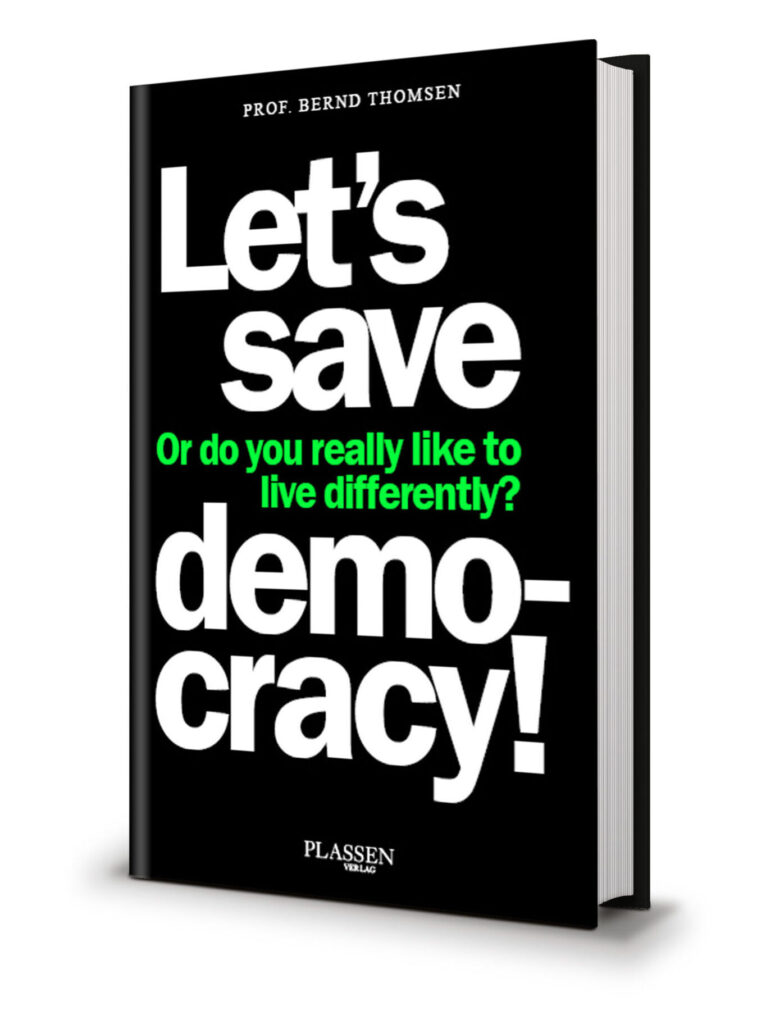More than in the book.
More than in the book.
More than in the book.


Courtesy of your smartphone.
Fire at your fingertips.

Courtesy of your smartphone.
Fire at your fingertips.
Courtesy of your smartphone.
Fire at your fingertips.




Chapter 2
What we should know about populists and propagandists.
While we’ve already covered populism in the book, you can find a summary of the eight points at the bottom of this page.
Now, let’s take a look at the top 10 forms of propaganda:
- Lies: Lies are the most important tool for propagandists. (A central lie is claiming to be democratic, such as pretending to hold elections while actually aiming to undermine democracy).
- Networking: Propagandists support each other in order to multiply, forming a sort of authoritarian international network. (Even if their interests differ, they share a common goal of destroying democracy).
- Conspiracies: Propagandists use conspiracy theories and extremist views to manipulate public opinion.
- Reach: Achieving wide reach is their short-term goal.
- Media Diversity: The diversity of media platforms, both conscious and unconscious, aids their efforts.
- Hijacking Values: Propagandists hijack what is important to their opponents. They claim to champion the truth (while lying), democracy (while seeking to abolish it), transparency (while concealing their true motive), and more.
- No Admission of Fault: They never admit uncertainties or mistakes, refuse to agree with competitors, and never apologize.
- Deflection and Counterattack: Propagandists turn everything around. When criticized, they deny everything. Alternatively, they may admit to the accusations while downplaying accusations and reinterpreting what was said. They often go on the counterattack, questioning the credibility of their critics.
- Holistic Approach: Propaganda utilizes a wide range of tactics, including fake news, disinformation, and conspiracy theories – which are all part of a broader strategy.
- Long-term Focus: Propaganda isn’t about individual lies, which have short-term repercussions. Propagandists are much more concerned with reshaping reality and establishing new social norms.
Propagandists are united in their rejection of liberal democracy. For those in power, it poses as an existential threat, while for others, it is a barrier on the path to power.
The Populists’ Method:
- Simplification: Populists reduce complex social, economic, and political issues to overly simplistic terms.
- Exaggeration: They amplify slogans and create exaggerated enemy images.
- Violation of Democratic Norms: Populists violate the unspoken democratic rule of refraining from denigrating, accusing, and insulting political opponents.
- Disregard of Election Results: They refuse to accept election results and often challenge them,
- Media Manipulation: Populists use the media to spread fake news.
- Incitement: They stir up divisions within the population, often using xenophobia.
- Undermining Separation of Powers: Populists work to weaken the separation of powers in government.
- Constitutional Amendments: They aim to achieve control by means of constitutional amendments.

